New Narratives
“For the longest time, I thought sexual intercourse had a time limit.”
At 29 years old, Marie-Élaine Guay abandoned the world of advertising to become a horticulturist. This change—from performance to passion—did not happen of a sudden. Gently, it came to infuse each area of her life.
TEXT Marie-Élaine Guay
I went through a tough time as a teenager, and I don’t particularly like talking about it. There were a lot of drugs, unhealthy energies, fear, violence, sleepless nights spent wishing I could snuff myself out, and, paradoxically, wanting to set myself on fire. I hated myself: my face, my body, my personality, my voice, my bitten nails. I was haunted by a feeling of worthlessness.
I spent my entire twenties working in advertising—dealing with people who thought they were hot shit, streamlining budgets, locking myself into a permanent state of stress that kept me from sleeping and feeling calm. I didn’t choose this career. I thought it was lucrative (especially since I’d never had any money). To a certain degree it made me feel like I belonged, but on the other hand, it was hacking away at my soul. I wasn’t writing anymore, except to clients. To this day, the word “client” still makes me want to douse myself in kerosene.
When I started my horticulture degree at the age of 29, I was in a real hurry to learn—keen on starting a new life. I was that annoying student who always had her hand up to answer questions; the head of the class who recited the Latin names and properties of plants in the shower. But that’s not how evolution works. It’s slow going. I had to stop trying to hammer information into my brain. These changes took place gradually, extending over the years, like a clear-cut forest returning to life, and I would eventually be pummeled by the realization that my knowledge was unremarkable; that nature is a world unto itself; that I am at once insignificant, powerless, and a multitude.
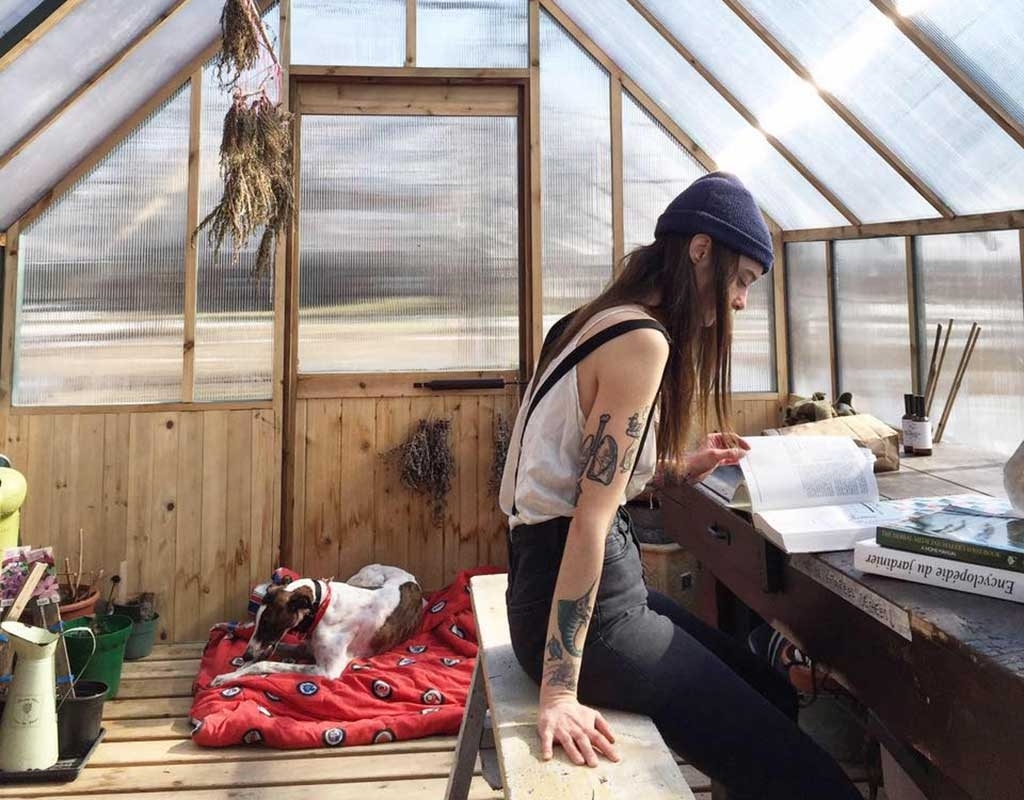
On Work
One November night, during my studies, I had a panic attack. I had my phone in my hand, three or four Messenger conversations going, an open book, school notes to review, a terminally ill father, a breakup stuck in my throat, and the certainty I wasn’t going to make it. I stopped everything so I could lie down on the floor. I think it was the first time in my life that I actually took the time to do that, that I really gave myself that moment. At that time, yoga allowed me to let go. I had known that the body stretches to its own rhythm, that there’s no point in wanting to launch into the lotus position right off the bat, because it’s the long and tedious road towards that pose that allows you to really benefit from it. Star-shaped, defeated, I let my thoughts flow through me. I watched them go by, without holding onto them. It lasted a few hours; it felt like years. I realized that performing wasn’t what I was made for; it wasn’t part of my story. I come from a long line of resourceful people, self-made warriors.
Like them, I was going to build something gentle that left me satisfied and fulfilled. Like them, I wasn’t going to give a flying fuck about what society expected of me.
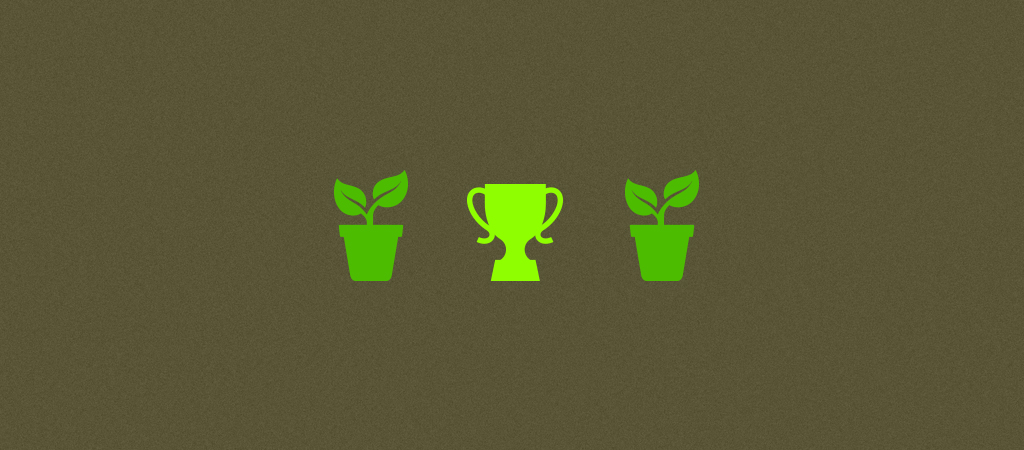
That year, I founded Skog, a company that creates natural products. This passion has allowed me to determine my own moments of stress.
Since then, I’ve been working no more than 25 hours per week. You’ll say I’m crazy. You’ll say I’m lazy. You can say whatever you want. I don’t have the strength or the desire to devote my time to others, and I simply won’t let authority get to me anymore. With Skog, I give, but I only spend the energy I actually have. That’s what works for me. I realize those conditions don’t work for everyone, and that not everyone is lucky enough to be able to choose.
People often ask me, “Your company must be big by now?” and “Are you starting to make a bit of money with that?” People rarely ask me how I’m doing. They talk about results, profits, growth. The idea is that a company must absolutely perform. I’ve never disagreed so much with anything. A company is above all a space for accomplishment, learning, selflessness. For me, capitalism is nothing more than a sad way of limiting ourselves intellectually and socially. Success is futile. And sure, success is our livelihood, but then what? What do we get out of it if we don’t take time to celebrate our inner achievements? Don’t we become mere approximations of ourselves? Empty shells? Just skins?
On Writing
I went through the same process with writing.
In early 2017, I hurled myself into the creation of my book, Castagnettes, as if my life depended on it. At first, I didn’t think there was any place for me in poetry. I read what others wrote and didn’t think I was good enough, not “literary” enough, not “academic” enough. But I needed it; I couldn’t suppress it. This visceral need quickly overpowered my imposter syndrome; writing authentically became infinitely more important than the anxiety around how people would eventually react to my book. When my publisher told me to take my time, I listened. I started not giving a fuck about what people would think. I became dangerous, intimate, and fierce.
Through writing, like through work, I give part of myself away, clearly — but I also take. I assimilate the therapeutic benefits that come with it. In poetry, there are no objects to move around, no time to account for, no agitation, no social and anxiety-provoking storms. In poetry, there are images, a search for the self and for others, timelessness, a community. I’m not the product of a literary environment; that’s not the kind of woman I am. But I’ve grown close to those brave humans who pour their souls out in open mic nights. I enjoy listening to them, rubbing up against the words they recite with trembling hands. I think they are important, these vulnerable chosen ones, these loud poets. They’re like a family I’ve chosen for myself.
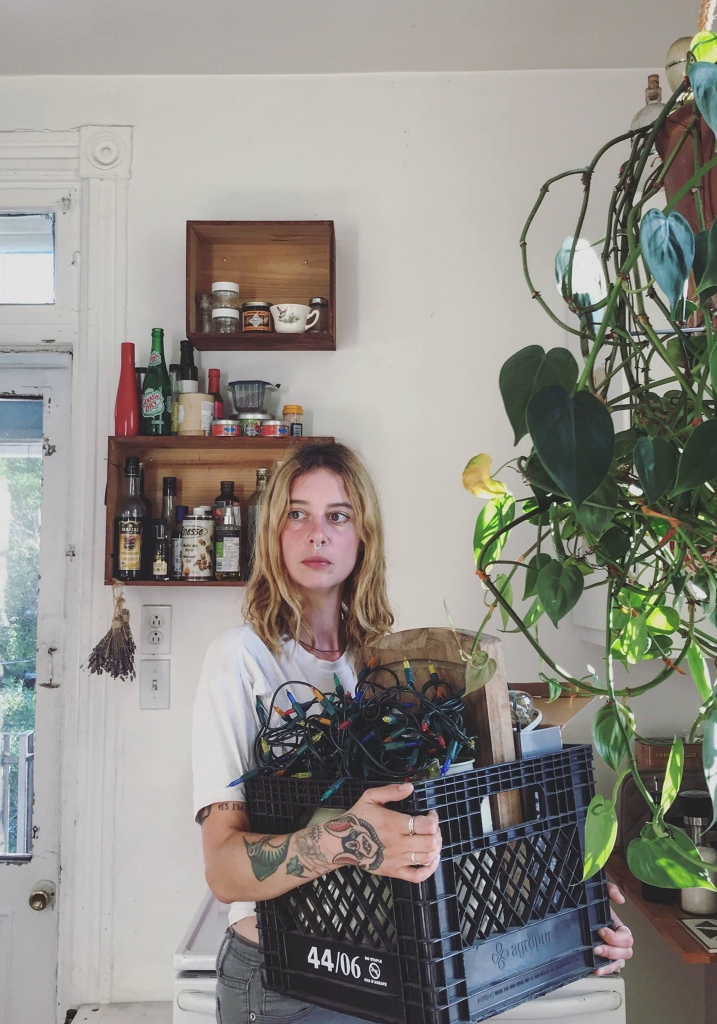
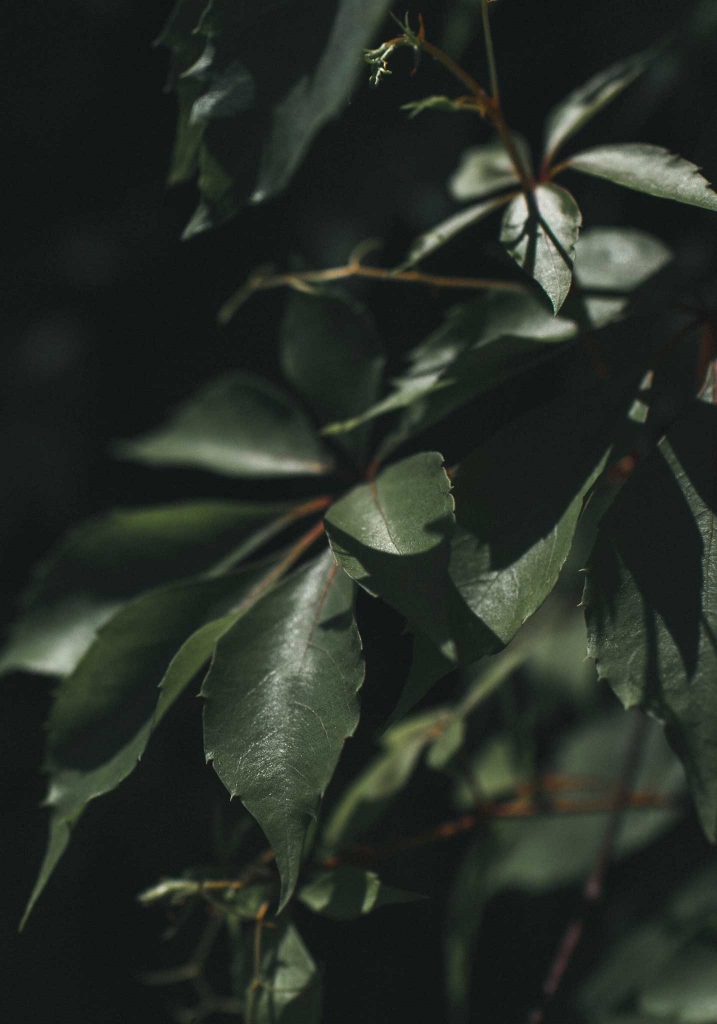
On Sexuality
For the longest time, I thought sexual intercourse had a time limit. I can remember asking myself, in the heat of the moment, “Is this almost over?” even when I took total pleasure in it, when it was easy and fluid. I was in a hurry for it to be good. There was an alarm, a timer inside of me. I realized that that’s how we deal with absolutely everything. Walks in the woods interrupted by “Let’s go back, it’s getting late”; meals wolfed down like they’re the last; nights spent telling the person with us, “I can’t wait to tell you all about it,” when they’re right there, smack in front of us. We’d rather experience what’s happening around us. Melding into the loud voices to escape the inner noise. Getting dizzy from the lovemaking, hoping to take flight until the next orgasm.
The link between a performance-based society and sexuality is simple: it’s about results. R-E-S-U-L-T-S. We talk about our intimate relationships by describing the other person’s involvement, their physical attributes. We wonder whether we’ll see them again, whether they deserve us. Or, conversely, we feel insecure about our own performance.
“Did the other person think I was good?”
“Did the other person think I was beautiful-handsome-hot-capable-hard-soft enough?”
Yet it’s in those moments of intimacy that we reveal what’s most true about us. We sleep with someone like we work: by constantly judging ourselves.
I think we all have the ability to learn to take a moment, to stop being in a hurry. We often make fun of that “spiritual” approach or whatever you want to call it, but it’s the only way to defeat the anxiety and the stress: nothing ever really matters if we take the present moment for what it is. It’s only a situation. And we are not the situation we are experiencing. We are simply new every day of our lives — ready to be.
My body will never wrap itself around the world, but my daily yoga practice allows me to attempt to ground myself in a way not even the wildest winds could shake. We need to start finding inspiration in nature again, in its strength, its slowness. We need to find a balance between Sukha and Sthira (Sukha: comfort, ease; Sthira: effort, stability), between gentleness and action, in absolutely everything we undertake. We need to try, fail, start over, without judging ourselves. We need to create, keep, destroy — inhale, hold, exhale. Life is a fucking huge cycle over which we hold no power.
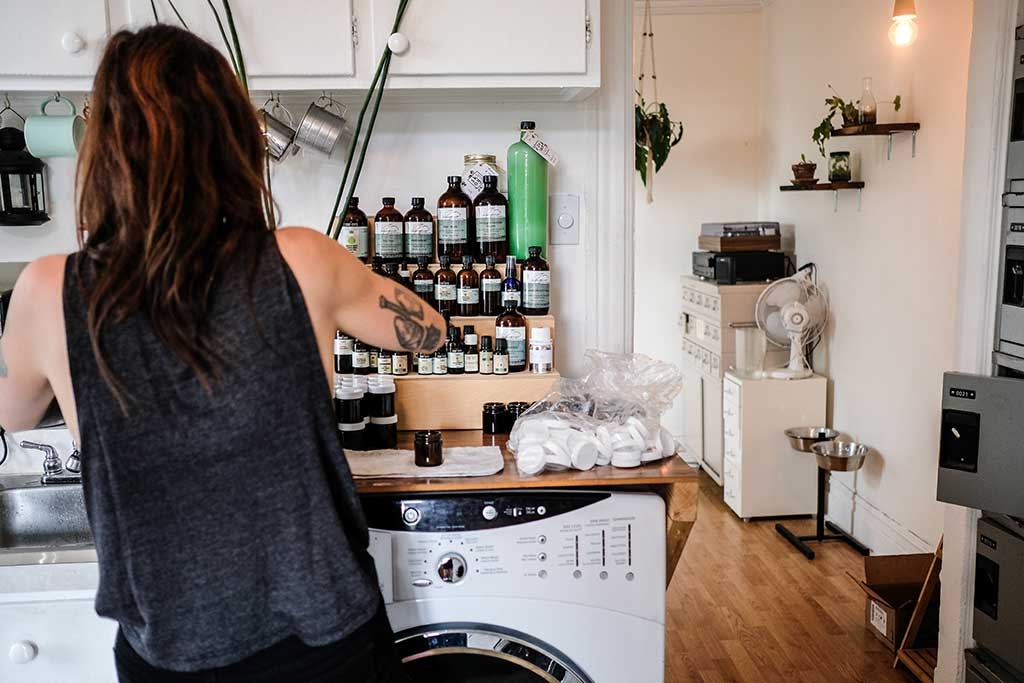
Now, I prefer living with the windows open, with the sun in my face — everything except darkness and speed. Now, I’d rather think that loving involves no cunning, no time limit, no other point than honouring what stands before us, offered. Now, I prefer learning from each of my flaws. Now, I’d rather accept that certain kinds of trees spend years trying to reproduce, and sometimes never succeed.
Now I know this dance is nothing short of fucking beautiful.
—
Marie-Élaine Guay was born in Québec City in 1983. She’s a horticulturist, a forest picker, and the founder and sole employee of Skog Natural Products. Her first collection of poetry, Castagnettes, was published by Del Busso Éditeur last September. Marie-Élaine is complicated, driven, and sensitive. Especially complicated.
Never Miss Another Issue
Two issues per year
25% OFF previous issues
Free Shipping in Canada